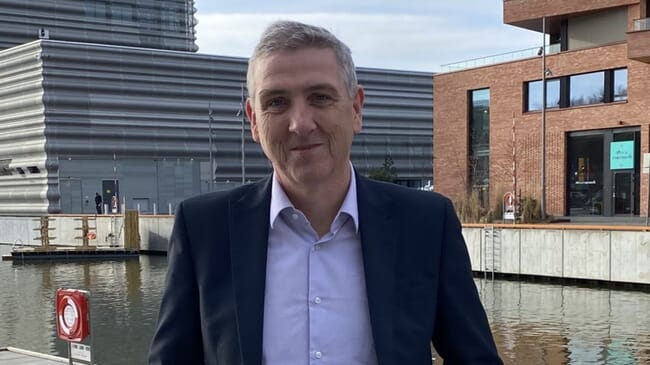
The government proposal for a new 40 percent “resource rent” tax on the country’s largest producers of salmon and trout, with effect from 1 January, was sent out for consultation last week and caused share prices of the country’s leading publicly traded salmon farming firms to nosedive by up to 19 percent.
“We will wait for more clear understanding of the announcement of last week and the final proposal for the resource rent tax and associated regulations,” stated CEO, Steven Rafferty, this week.
Cermaq was Norway’s fourth biggest producer of salmon last year, harvesting 92,000 tonnes, putting it well over the 5,000-6,000 tonne tax exemption suggested by the government, should the law be passed by the Norway’s parliament, the Storting.
In a statement released yesterday, the company said that: “Cermaq does not concur with comments by the Norway Finance Minister that the salmon producers ‘did not pay for the old licenses’”.
They point out that the owner of Cermaq – Mitsubishi Corporation – acquired the company in 2014 from the principal shareholder, the Norwegian Government, at a market price.
“Most of the price paid was for the valuation of the licenses. Further growth of Cermaq has been through the license auctions also at market price, only 2 years ago, where the auction price was calculated the current tax regime,” they observe.
“On acquisition of foreign-owned companies, it is often appropriate to factor in a country risk within the acquisition price where there is a volatile economy or a politically unstable environment, where Norway is seen as the opposite. It is hard to believe with hindsight that Mitsubishi should have incorporated a country risk for an economy such as Norway,” stated Rafferty
He went on to describe the company’s investment strategy and how it was benefitting the Norwegian economy.
“The vast majority of profits made in Cermaq Norway since 2014 have been reinvested in our operations. Though Cermaq has large operations also in Canada and Chile, the majority of the funds have been invested in Norway,” he said.
For many years, Norway has been the leader in research and development and innovation and also by addressing sustainability and lower carbon emissions through new technologies and large investments in this area.
“There is little doubt the current resource tax proposal will lead to less investment in Norway and more outside of the country. The new regulations if implemented would severely damage the position of Norway as a global leader. After many years working in the global salmon industry, I have referred to Norway as a role model for other salmon countries to follow. This cannot be the case going forward if the proposal is mandated. There are many details of the proposal that will impact Norway’s competitive position as a frontrunning salmon region negatively. It is a pity that a consultation process could not have taken place prior to the announcement of the new tax,” said Rafferty
Cermaq says that it has invested more than NOK 5 billion in Nordland and Finnmark since 2016. The intention was to invest a similar amount in the coming years.
“However, considering the new proposals, we have no choice but to pause, this will naturally impact on growth and job creation in many coastal municipalities in which we operate,” said Rafferty
Cermaq Norway employs 680 people in Nordland and Finnmark counties. The company is one of Northern Norway's largest fish farming companies with 4 freshwater facilities, 43 sea facilities and 2 processing plants, as well as a viewing center in Hamarøy. Salmon production is located in Steigen, Hamarøy, Bodø, Narvik and Øksnes municipalities in Nordland, and Loppa, Alta, Hammerfest and Måsøy municipalities in Finnmark.
“As a major employer in these communities, we want to contribute to growth. We planned a new hatchery in Hasvik municipality in Finnmark, creating 30 new jobs, but that project is now on hold,” he said.




